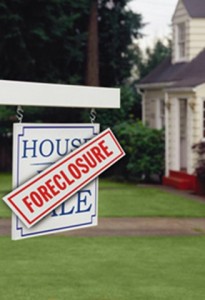So, the word on the street is that this Small Business Jobs Act of 2010 is going to make it up to Obama’s office for his signature. Piggy-backing on what Mr. Blumer blogged this week about the bill, I thought I would chime my two cents in. The “Small Business Jobs Act” is a misnomer because it carries many tax provisions affecting large as well as small businesses, plus changes that affect individuals, such as eased Roth IRA rules.
Sexy:
- Qualifies Real Property Expensing This would be the first time that Code Sec. 179 expensing could be claimed for realty (leasehold improvements).
- Startup Expense Deductions Increased. For tax years beginning after Dec. 31, 2009, and before Jan. 1, 2011, the deduction for startup expenses under Code Sec. 195 would be increased from $5,000 to $10,000
- Five-year carryback of small business unused general business credits. The general business credit (GBC) generally can’t exceed the excess of the taxpayer’s net income tax over the greater of the taxpayer’s tentative minimum tax or 25% of so much of the taxpayer’s net regular tax liability as exceeds $25,000. Credits in excess of this limitation may be carried back one year and forward up to 20 years. Under the small business jobs bill, the carry back period for eligible small business (ESB) credits would be extended from one to five years.
- See Blumer’s Blog
Not so sexy, but important:
- 100% exclusion for gain from qualified small business (QSBS) stock. There would be a 100% exclusion of gain from the sale of QSBS stock (a) acquired after the enactment date of the small business jobs bill and before Jan. 1, 2011, and (b) held for at least five years.
- Information reporting for rental income. For payments made after Dec. 31, 2010, persons receiving rental income from real property would have to file information returns to IRS and to service providers reporting payments of $600 or more during the year for rental property expenses. Exceptions would be provided for individuals temporarily renting their principal residences (including active members of the military), taxpayers whose rental income doesn’t exceed an IRS-determined minimal amount, and those for whom the reporting requirement would create a hardship.
- Increased penalty for failure to timely file information returns. For information returns required to be filed after Dec. 31, 2010, the Code Sec. 6721 penalties for failure to timely file information returns to IRS would be increased. The first-tier penalty would go from $15 to $30, and the calendar year maximum from $75,000 to $250,000. The second-tier penalty would be increased from $30 to $60, and the calendar year maximum from $150,000 to $500,000. The third-tier penalty would be increased from $50 to $100, and the calendar year maximum from $250,000 to $1,500,000. For small business filers, the calendar year maximum would go from $25,000 to $75,000 for the first-tier penalty, from $50,000 to $200,000 for the second-tier penalty, and from $100,000 to $500,000 for the third-tier penalty. The minimum penalty for each failure due to intentional disregard would be increased from $100 to $250.
